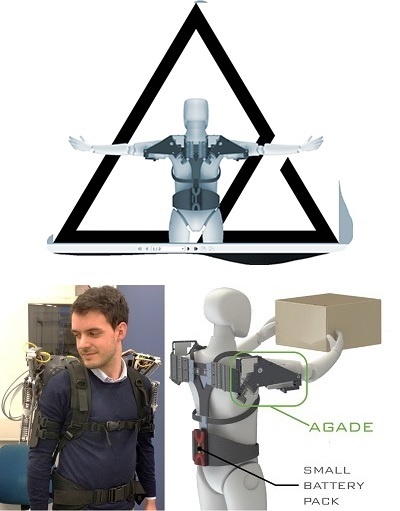
Starting from April 2020, AGADE - Anti-Gravity Active Device for Exoskeleton - will become a fully-fledged and capitally funded startup at PoliHub, aiming at turning into the go-to Italian company for the design of a new generation of exoskeletons, in the work-related injury prevention field. AGADE was born from a collaboration between MeccPolimi and the Department of Electronics, Information and Bioengineering - DEIB (NearLab) on the design of biomedical exoskeletons. The idea was initially granted 30.000 € for technology advancement in 2018 by the Switch2Product competition, in collaboration with PoliHub e Deloitte. In 2019 AGADE was finalist at StartCup Lombardia and Deutsche Bank’s Startup4Good, and winner of a second grant of 50.000 € from the Manfredi family.
Exoskeletons are nothing less than wearable robots, designed to aid the user in fatiguing or rehabilitation tasks. In this scenario, lightness and smartness are key requirements. AGADE is a patent pending technology and represents an innovative motor for exoskeletons, designed to reduce the power consumption by 9 times compared to the most efficient actuators available today. This allows to mount on exoskeletons very small and light battery packs, but still ensuring a smart assistance. AGADE focuses on advanced control logics and algorithms to tailor the response of the device to every different tasks and users.
AGADE originated as Master Thesis at MeccPolimi, under the supervision of Prof. Francesco Braghin and prof. Alessandra Pedrocchi from DEIB, and was developed to a working TRL 4 prototype in the laboratories of the Department. Currently, AGADE boasts a team of three mechanical engineers: Lorenzo Aquilante, who recently received his PhD at MeccPolimi, Dr. Daniele Ramirez and Dr. Mattia Tabaglio, and two biomedical engineers: post-doc Marta Gandolla and PhD candidate Stefano Dalla Gasperina.
